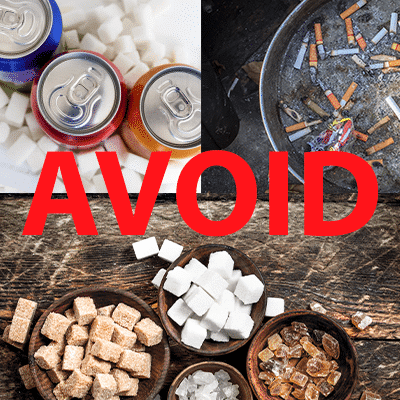Breaking News: Gut Microbes Improve Cancer Therapy Results

In your gut, you have trillions of microbes that influence your physical health, and even your emotional well-being.
Just how significantly these bacteria, viruses, fungi, and parasites impact you is still being discovered.
One thing is for sure though, your microbiome is powerful, fascinating, and could be the key to improving the treatment of many illnesses.
In two recent studies, researchers found this to be true when it comes to treating cancer.
The types of bacteria you have in your gut can boost cancer therapy and improve success rates.
This is great news!
Imagine being able to do something as simple as manipulating the bacteria in your gut to improve the results of a cancer treatment.
Well, this is exactly what these studies suggest is possible. When you take care of your gut, it helps take care of you.
Gut Bacteria May Improve Cancer Treatment
One study examined the effects of the gut microbiome on cancer treatment in patients with lung and kidney cancers.
What researchers found was that patients who took antibiotics had damage to their microbiomes.
This damage increased the risk of tumor development while undergoing immunotherapy. They also found low levels of the Akkermansia muciniphila bacteria, which are thought to improve cancer therapy results.
In a coinciding mouse model, the Akkermansia muciniphila bacteria was added to the microbiome of antibiotic treated mice through fecal transplants. There was an improvement in response to cancer immunotherapy in these mice.
What’s more, some of the mice who weren’t responding to cancer treatment at all began showing signs of response and improvement once they had their Akkermansia muciniphila levels increased.
In another study, researchers found bacterial diversity was important in determining whether or not patients with melanoma responded to treatment.
Those with many different types of bacteria in their microbiome had more favorable results. This was especially true in patients with high levels of the Faecalibacterium genus.
On the other hand, patients who had worse results or less response to cancer therapy tended to have more bacteria of the Bacteroidales genus. These relationships were confirmed with mice models, where fecal transplants of certain bacteria mimicked the results seen in humans.
These findings suggest that whenever someone is undergoing a treatment, different life factors that impact the gut should be considered.
In the case of cancer therapy, it’s a good idea to avoid antibiotics whenever possible.
Why Doesn’t Cancer Therapy Work For Everyone?
Why cancer immunotherapy works for some people but not others is a mystery that has been perplexing doctors for years. Research is now suggesting that those with a population of the right kinds of good bacteria, may have better treatment results.
Those that took antibiotics have a much lower rate of response to their cancer therapy.
This is great news because it’s relatively easy to change the composition of your gut bacteria. Meaning, the more we know about the specifics and what exact species are beneficial, the better we can take the necessary steps to improve our health.
Moreover, one day we might be able to change our gut microbiome so it supports our personal health goals.
Interactions of the microbiome with disease and treatments are continuing to unravel before our very eyes. Future studies are needed to fully uncover specific recommendations in cancer and noncancer patients alike.
How to Have a Healthy Gut in 4 Easy Steps
All this research surrounding the gut microbiome has confirmed an important lesson:
Being healthy is more than eating right and exercising
– it means taking care of your gut too.
With that in mind, here are four steps to having a healthy gut:
Avoid gut harming behaviors. This includes:
-
- Chronic stress
- Poor sleep
- NSAIDs – (Ibuprofen, Aleve, etc.)
- Antibiotics
- Eating the same foods over and over
- Drinking too much alcohol
- Not exercising
- Exercising too much
- Smoking cigarettes
Avoid gut harming foods. These include:
-
- Industrial seed oils (canola, soy, corn, etc.)
- Fried foods
- Gluten
- Processed foods
- Anything you’re sensitive to (dairy, eggs, nuts, etc.)
- Sugar
- Artificial sweeteners
- Refined carbohydrates
Add gut healing habits. These include:
-
- Eating diverse foods
- Exercise regularly – (Exercising increases the Akkermansia muciniphila bacteria!)
- Plenty of high quality sleep
- Stress reduction
- Reduce chemical exposures
- Add gut healing foods. These include:
-
- Fermented foods
- Prebiotics
- Polyphenols
- Bone broth
- Wild caught salmon
- Grass-fed beef
- Vegetables
- Coconut oil
- Olive oil
You can apply what we currently know about the gut microbiome through taking good care of your gut health. Incorporate the four steps above to support a resilient and diverse microbiome.
Another very important aspect of taking care of your gut involves not ignoring digestive symptoms.
For example, if you are regularly bloated, don’t push your way through the discomfort.
Find solutions for symptoms like bloating and make sure they aren’t signs of an underlying condition.
Be careful you aren’t using over the counter medicines that offer temporary relief but ultimately cause more harm than good. Instead, opt for natural solutions like Atrantil.
Not only does Atrantil alleviate bloating and other digestive discomforts, it is a natural supplement that promotes good gut health overall.
Beyond Cancer – Can The Gut Microbiome Help Other Diseases?
These findings have broader implications, of course.
They make you wonder, in what other ways can we use the microbes of the gut to our advantage? One day we might be able to find new therapeutic solutions through influencing our gut microbiome.
What an exciting time for medicine!
These studies are very new and so many people don’t know about them.
It’s up to us to spread the word! Share this article with your friends and family, so we can get this important and exciting information out.
https://science.sciencemag.org/content/359/6371/91
https://science.sciencemag.org/content/359/6371/97
https://www.ncbi.nlm.nih.gov/pubmed/22972295
https://www.ncbi.nlm.nih.gov/pubmed/27110483
https://journals.plos.org/plosone/article?id=10.1371/journal.pone.0171352